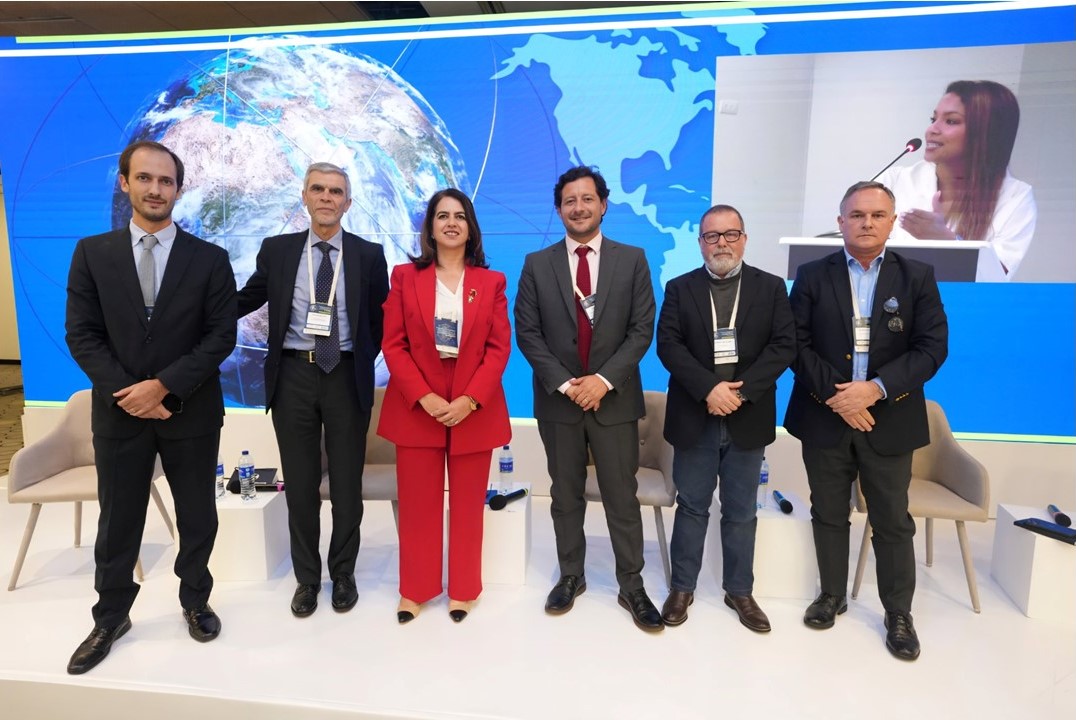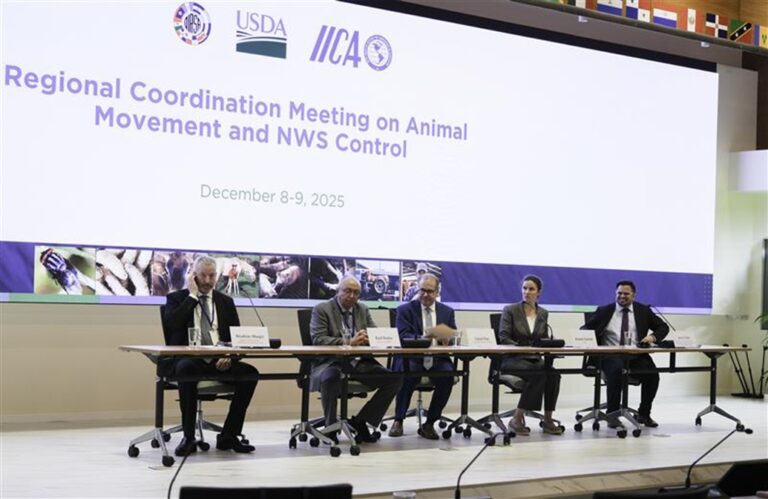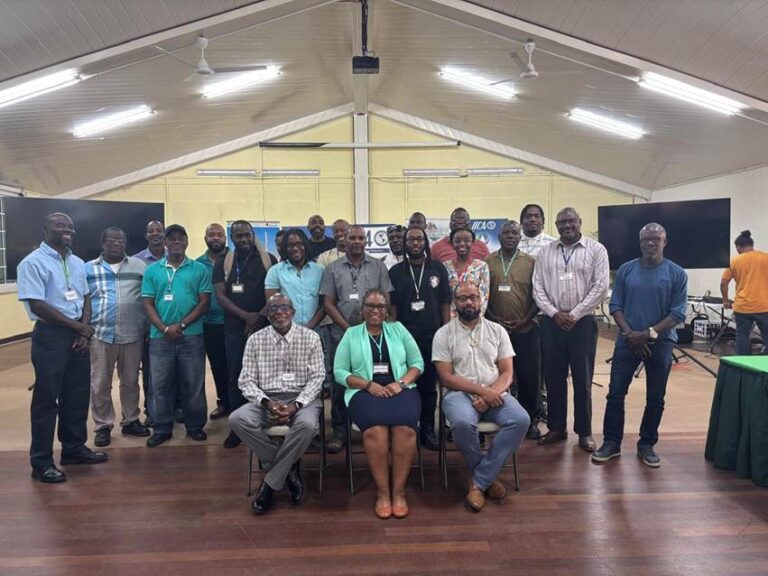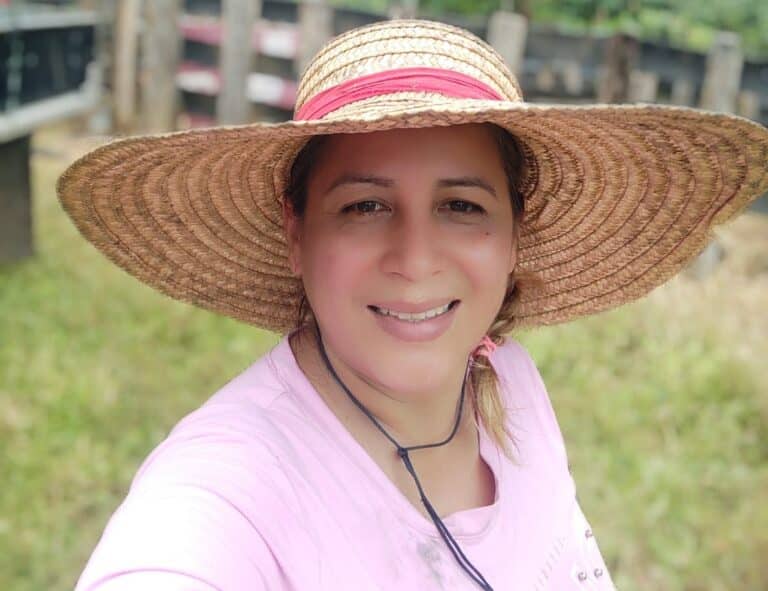The event brought together more than 200 leaders and key industry players at a critical time for the continent, which has a great availability of raw materials to meet the growing demand for sustainable aviation fuels.

Bogotá, 7 August 2024 (FEDEBIOCOMBUSTIBLES/IICA/CPBIO) – The aviation industry could achieve zero emissions with the use of Sustainable Aviation Fuels (SAF) by 2050, and Colombia has the potential to be a key leader.
Against this backdrop, more than 200 leaders and key industry players gathered in Bogotá, Colombia, for the First Pan-American Congress on Sustainable Aviation Fuels. The event was organized by IICA, CPBIO, and FEDEBIOCOMBUSTIBLES and was attended by important experts such as Carolina Rojas, Executive President of the National Federation of Biofuels of Colombia (FEDEBIOCOMBUSTIBLES), and Sergio París, Director General of Civil Aviation of Colombia. Andrés Rebolledo, Executive Secretary of the Latin American Energy Organization (OLADE), and Manuel Otero, Director General of the Inter-American Institute for Cooperation on Agriculture (IICA), who addressed the audience virtually.
In the panel entitled ‘Technological Routes: Current Status and Perspectives,’ the current state of technological routes was presented with a special emphasis on production costs, coproducts, and yields—Hydroprocessed Esters and Fatty Acids (HEFA), Alcohol to Jet (AtJ), and Fischer-Tropsch (FT). Participants included Aldo Marcelo Peiretti, Technology Licensing Manager at TOPSOE; André Luis Defaveri, Director of Sales, New Business Development – Latin America at Honeywell; Pedro Meléndez, Project Development Lead at Lanzajet; and Gaurav Goya, Business Unit Head for SAF at Praj. The panel was moderated by Manuel Ron, representative of the Maize Bioethanol Chamber of Argentina.
Gaurav Goya highlighted two key factors driving the SAF initiative: carbon intensity and cost. “At Praj, we have an innovative solution: integrating energy and carbon capture during ethanol production to significantly reduce these factors and achieve cost benefits. In India, we have 10% of the world’s ethanol production capacity, and with 40 years of existence, we continue to grow,” he said. André Luis Defaveri of Honeywell added, “The possibility of making Latin America the OPEC of liquid biofuels is real.”
The presentation on ‘SAF Prices and Raw Materials’ by Wesley Monteiro, Global Market Development Lead at PLATTS, explained in detail the evolution of SAF prices compared to fossil fuels and trends in raw materials.
The second panel on ‘CORSIA and SAF’ presented the functioning of the Carbon Offsetting and Reduction Scheme for International Aviation (CORSIA) and the promotion of SAF, detailing sustainability criteria. Participants included Jane Hupe, Deputy Director of Environment at the International Civil Aviation Organization (ICAO), and Cesar Velarde, Environment Lead at the Air Transport Bureau of ICAO, who recently adopted a global long-term aspirational goal (LTAG).
The third panel, titled ‘SAF Regulations and Promotions,’ aimed to present public policies and promotion regimes for SAF in the European Union, the United States, and Brazil. Speakers included Darlan Santos, Technical Advisor at the National Civil Aviation Agency of Brazil (ANAC); Fernanda Cabañas Gac, Coordinator of the Clean Flight Program – Sustainable Mobility and Green Hydrogen at the Chilean Energy Sustainability Agency; and Prem Lobo, from the Energy Division of the Office of Environment and Energy at the Federal Aviation Administration of the United States. This panel was moderated by Carlos Mateus, Secretary General and Legal Director of FEDEBIOCOMBUSTIBLES.
“We are very pleased to have held this congress, the first to focus on the perspective of biofuel producers, whose experience is vital for generating critical messages for the country on how to continue advancing on SAF,” said Mateus. “Moreover, we had the opportunity to convey our message to ICAO and show this position at the Pan American and Colombian levels. We must consider certification and raw material availability, as well as the development of joint projects, aligning our positions and harmonizing regulations to allow sustainable development of our industry and sector,” he added.
The fourth panel focused on the ‘SAF Ecosystem’ and aimed to understand the perspectives on SAF from the aviation value chain. Participants included Pedro de la Fuente, Senior Manager of External Affairs and Sustainability for the Americas at the International Air Transport Association (IATA); Milena Fajardo, Head of Fuel and Sustainability at the Latin American and Caribbean Air Transport Association (ALTA); César Pereira, Advisor, Sustainability and Strategy at Embraer; and Sandra Ballén, Manager of Products and Petrochemicals at the Commercial Vice Presidency of Ecopetrol. The panel was moderated by Aida Lorenzo, General Manager of the Renewable Fuels Association of Guatemala, who highlighted the “importance of bringing together SAF supply and demand sectors in the region, particularly the barriers and challenges airlines face and what should be the priorities and steps forward.”
The final panel, organized by CPBIO, entitled ‘The Land Biofuels Value Chain and SAF Expectations,’ aimed to present the expectations and advances in the interrelation of the land biofuels value chain with SAF. Participants included Álvaro Lorenzo, General Manager of ALUR (Uruguay); Flavio Castellari, Executive Director of APLA (Brazil); Carolina Rojas, Executive President of FEDEBIOCOMBUSTIBLES (Colombia); Víctor Castro, Executive Director of CARBIO (Argentina); and Juan Sebastián Díaz, Regional Consultant of the Grain Council (USA).
“I would like to emphasize the level of organization and the quality of all the panels, as the entire spectrum of critical topics for SAF was highly relevant,” expressed Lorenzo. Flavio Castellari added, “In the panel, we presented Brazil’s potential for producing raw materials for SAF, as well as producing it from alcohol – with biodiesel or soybean oil. This congress was important as it was the first to specifically address SAF, with excellent presentations and content from Europe, the USA, and Latin America. We can now move forward together and seek a coalition of Latin American countries to show the world our region’s comparative advantages in the production and use of biofuels.”
Carolina Rojas from FEDEBIOCOMBUSTIBLES stated, “We had the opportunity to learn about the SAF advances, perspectives, and projects in different countries in the region. This congress provided us with a great overview of opportunities for Latin America to become a SAF hub in the world.”
Víctor Castro of CARBIO commented, “We discussed America’s and Argentina’s capacity as green carbon suppliers for SAF production and biofuels for general transportation. It’s remarkable to see how this fossil carbon provided by geology has now become green carbon from agriculture. We must now also consider productive chains not only for protein production but also in environmental terms: reducing carbon emission footprints that are causing so much economic harm worldwide due to the greenhouse effect. We hope to return to that zero-emissions balance that the planet desperately needs.”
Juan Sebastián Díaz, Regional Consultant of the Grain Council (USA), stated, “It was very interesting to understand the challenges each industry faces and the opportunities to become producers of raw materials for SAF, particularly in the ‘Alcohol to Jet’ route. As part of CPBIO, there are many challenges we need to review, particularly how each company is contributing to reducing carbon intensity and how we can work together in the future to have much clearer public policies around SAF.”
The panel was moderated by Agustín Torroba, international biofuels specialist at IICA and Technical and Executive Secretary of CPBIO, who noted that “the Congress brought together technologists, the aviation value chain, regulators, and especially the traditional biofuels value chain in the land transport and raw materials sector that will be future SAF providers to decarbonize air transport.”
More information:
Institutional Communication Division.
comunicacion.institucional@iica.int











